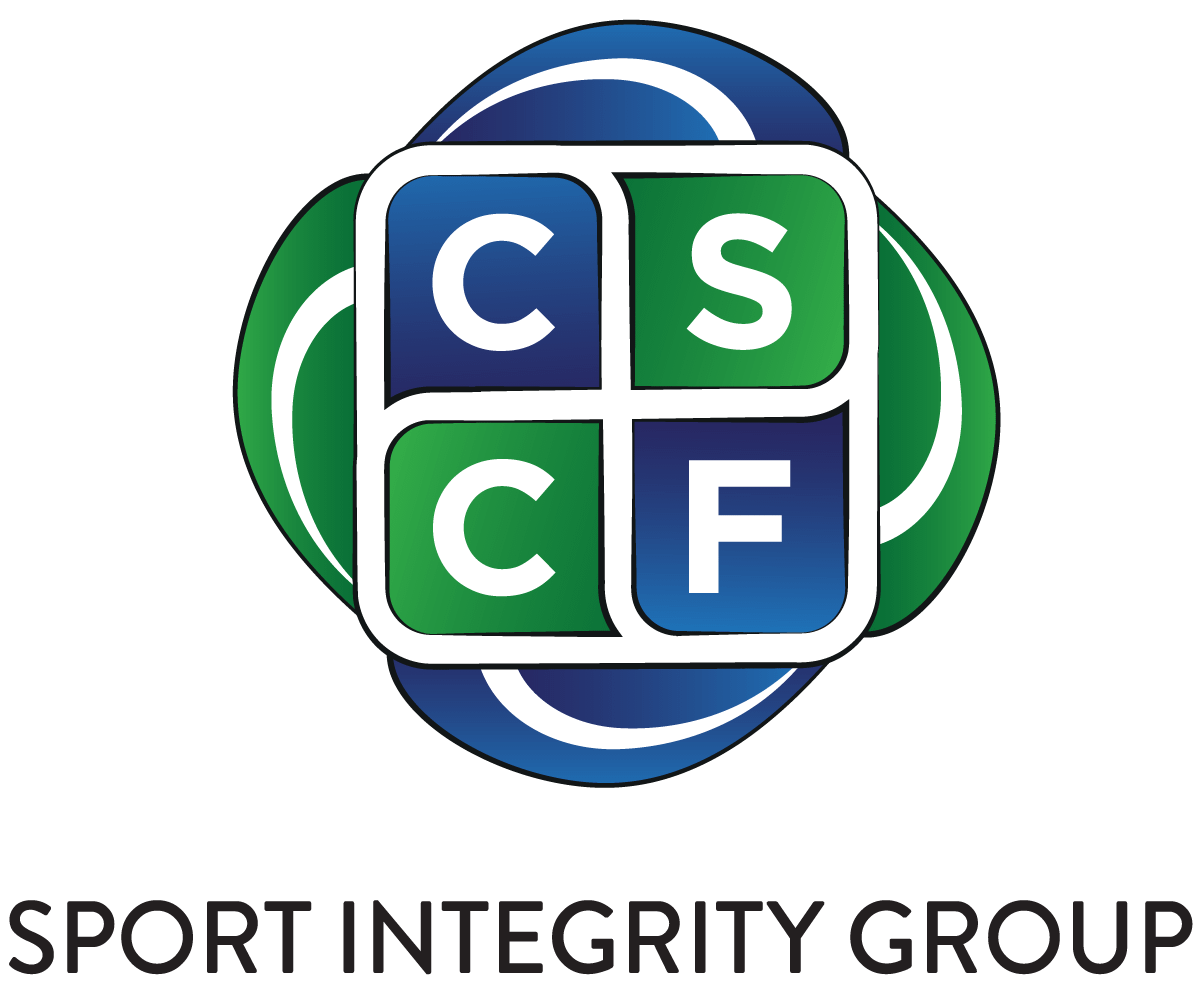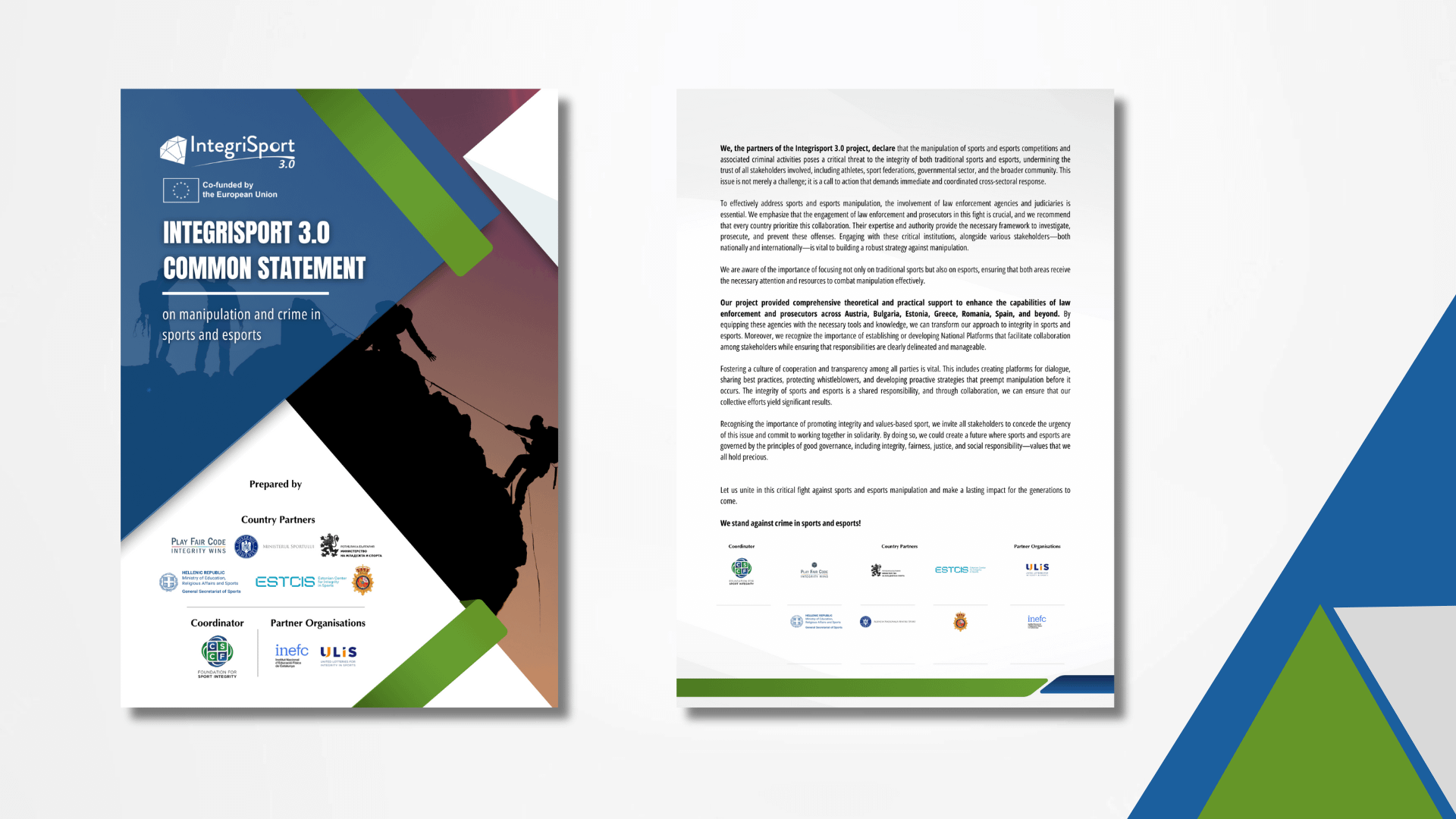The
Hague, the Netherlands — The IntegriSport 3.0 project, implemented from 2023
to 2024, concluded with a successful closing conference that gathered national
and international stakeholders from 32 countries, including law enforcement and
judiciary authorities of 24 countries on 4 continents, representatives of the
European Union, Europol, Eurojust, Interpol, the International Olympic
Committee, Riot Games and other distinguished organizations together with the
project partners, to conclude the project and have comprehensive discussions on
the protection of sports and esports from manipulation and crimes.
The
project aimed to enhance the awareness of law enforcement and judiciaries on
investigation and prosecution of crimes related to sports and esports
manipulation through targeted training and collaboration among law enforcement,
judicial authorities, and key sports stakeholders.

Achievements
of the IntegriSport Initiative
Since
its inception, the IntegriSport initiative has been instrumental in fighting
sports manipulation and crime in sport and esports, involving over 25 partner
organizations, and provided for more than 120 law enforcement and judicial
bodies from 16 countries in the last 6 years. Led by the developer of the
IntergiSport concept, CSCF Foundation for Sport Integrity, the program has
provided essential training and fostered collaboration across borders to
strengthen the fight against sports and esports-related crimes.
The
EU-funded IntegriSport 3.0 continued this mission, with significant
contributions from the partners of the project, CSCF Foundation for Sport
Integrity (the coordinator and content provider), Austria's Play Fair Code, the
Ministry of Youth and Sports of Bulgaria, the Greek Ministry of Education,
Religious Affairs and Sports, the Estonian Center for Integrity in Sports
(ESTCIS), the Romanian National Agency for
Sports, and the Spanish National Police. Additionally, IntegriSport 3.0
has benefitted from the involvement of prominent organizations like the
National Institute of Physical Education of Catalonia (INEFC), United Lotteries
for Integrity in Sports (ULIS), and FIFPro, our supporting organization, which
have all contributed to strengthening sports integrity frameworks across
Europe.

Impact
across partner countries
Throughout its three editions, CSCF and its partners have worked to protect sports integrity by educating and building cooperation between law enforcement, judicial authorities, ministries, sports and esports federations. Besides the IntegriSport 3.0 partner organizations, the project countries have seen participation from law enforcement, judiciaries, ministries, sports and esports federations, players' unions, and the national betting industry. Europol, Interpol, the Council of Europe, the International Olympic Committee, and the Maltese Police Force also provided their expertise. This ongoing effort has raised awareness and provided practical tools to combat manipulation in both traditional sports and esports. It also has empowered law enforcement and judiciaries in the partner countries and has encouraged them to engage with their own national stakeholders.
IntegriSport
3.0 Impact and Results
-In Austria, the project strengthened collaboration with the Criminal
Intelligence Service (BKA) and fostered deeper cooperation with prosecutors and
judges, raising awareness of sports manipulation among fraud and organized
crime units nationwide.
-In Bulgaria, the project introduced sports integrity education to police
students for the first time, while fostering ongoing discussions about
ratifying the Macolin Convention and reorganizing the National Platform against
sports manipulation.
-In Estonia, valuable insights gained from Spanish experts led to
discussions about creating a specialized police unit for sports corruption at
the Estonian Police. The project also connected the Estonian esports community
with stakeholders, leading to new collaborations and inclusion in international
efforts.
-In Greece, the project marked the first awareness-raising session
involving a diverse range of stakeholders, leading to greater inclusion of
player representation in the National Platform of Greece against sports
manipulation. Esports manipulation also became a key focus, with stakeholders
supporting its formal inclusion under the Macolin Convention.
-In Romania, authorities committed to implementing the knowledge gained
through IntegriSport to combat sports-related corruption.
-In Spain, there was a significant improvement in monitoring and
detection systems, with strengthened communication between regulatory bodies,
betting operators, and sports entities. This resulted in enhanced integrity
across the sector and public confidence in the fairness of sports competitions.
-At the policy-making level, this year brought some significant successes
amongst our partner countries and partners: Romania has decided to sign the
Council of Europe Macolin Convention, whereas Spain has ratified this very
important legal instrument.
Closing
Conference Highlights
The
closing conference, held on the 11th of November, was marked by a series of
engaging presentations and discussions. The agenda featured the partner
organizations of the project sharing insights on the project’s implementation
and its impact across the 6 partner countries and on the work of the 3
international partner organizations by
-CSCF Foundation for Sport Integrity,
-Play Fair Code,
-The Ministry of Youth and Sports of Bulgaria,
-The Greek Ministry of Education, Religious Affairs and Sports,
-The Estonian Center for Integrity in Sports (ESTCIS),
-The Romanian National Agency for Sports,
-The Spanish National Police,
-The National Institute of Physical Education of Catalonia (INEFC), and
-The United Lotteries for Integrity in Sports (ULIS).
The
biggest players' representation of the world and supporting partner of
IntegriSport programs, FIFPRO highlighted the importance of protecting
athletes, showcasing a case study that exemplified best practices in addressing
manipulation and corruption.
After a
very thorough introduction of case studies on sport manipulation investigation
by the Police authorities of Greece and Spain, dynamic panel discussions were
held. The panel discussions were dedicated to giving knowledge, thoughts, and
support for law enforcement and judiciary to get more insight on the phenomenon
of sports manipulation and how they would be able to fight effectively against
criminals infiltrating sports and esports all over the world.
The
first panel focused on the intersection of sports and integrity, featuring
industry experts from the International Olympic Committee, FIFPRO, Play Fair
Code, and ULIS, with Europol and CSCF Foundation for Sport Integrity as
moderators. The discussion highlighted the importance of ethical standards and
accountability within sports organizations and explored the important role of
law enforcement and judiciary bodies in protecting sports organizations and
athletes, fostering a fair and transparent sporting environment.
The
second panel addressed the growing field of esports, featuring insights from
industry experts at Riot Games, Interpol, and Postimees Grupp, with CSCF
Foundation for Sport Integrity as moderator. This session explored the unique
challenges and opportunities for maintaining integrity within this rapidly
evolving sector. Experts discussed the need for robust frameworks to protect
players and ensure fair competition, emphasizing the critical role of law
enforcement and judicial bodies in this journey, as well as the importance of
educating these stakeholders to deepen their understanding of issues in
esports.
Throughout
the conference, participants engaged in fruitful conversations, exchanging
ideas and strategies for future collaboration. The session proved to be
fostering connections among stakeholders committed to promoting integrity in
sports.
During the event, the 8 partners of IntegriSport 3.0 announced their common statements on protecting sport and esports and supporting law enforcement and judiciaries.
For media inquiries, please contact: Integrisport3.admin@cscfsport.com
Disclaimer: The project is funded by the European Union. Views and opinions expressed are however those of the author(s) only and do not necessarily reflect those of the European Union or EACEA. Neither the European Union nor the granting authority can be held responsible for them.




